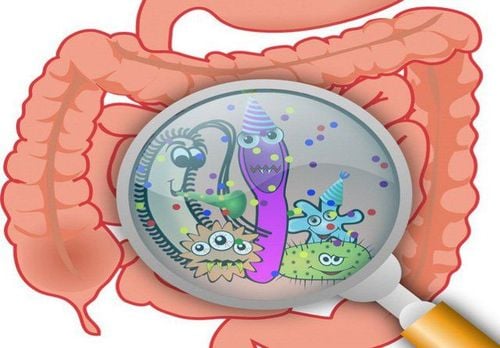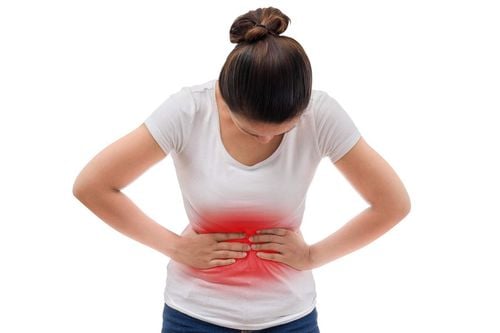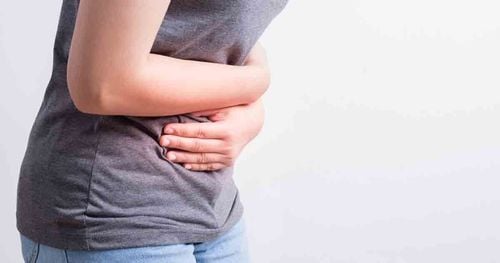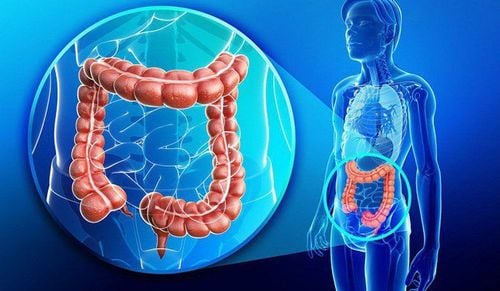This is an automatically translated article.
The article is professionally consulted by Doctor Vo Thi Thuy Trang, Department of Medical Examination & Internal Medicine - Vinmec International Hospital Da Nang.Modern life with a lot of pressure and mental stress makes irritable bowel disease appear more. This is a benign disease because there is no physical damage to the colon, but it causes many inconveniences and difficult to treat.
1. Overview of Irritable Bowel Disease
Irritable bowel disease is also known by many other names, such as: functional colon syndrome, spastic colitis, digestive tract dysfunction.... The disease tends to appear on a daily basis. more and more, can be found in all ages and sexes. In which, the most common patient population falls into adulthood and the rate of women is usually 3-4 times higher than that of men. According to statistics, in the US, about 25% of the population has spasm of the colon, while in Vietnam, patients who come to the gastroenterology specialist have irritable bowel disease accounting for 30-40%.At present, the cause of irritable bowel disease is still unknown, doctors only recognize a few mechanisms related to this syndrome as follows:
The small intestine and colon have abnormal contractions; Hypersensitization of the intestines and colonic receptors; Mental disorders, objective factors include: Depression, psychological trauma, stress...; Unscientific diet. Spastic colon disease is characterized by symptoms of colonic dysfunction, with no evidence of physical damage when the patient undergoes colonoscopy, colonoscopy, or biopsies.
Although spastic colon syndrome is not life-threatening, nor does it lead to some more dangerous diseases such as ulcerative colitis, colon cancer... but it will cause many inconveniences and impacts. negatively affect the patient's quality of life. People with irritable bowel syndrome need to avoid consuming foods with too much protein or fried foods to reduce the contraction of the colon.
2. Diagnosis of irritable bowel disease
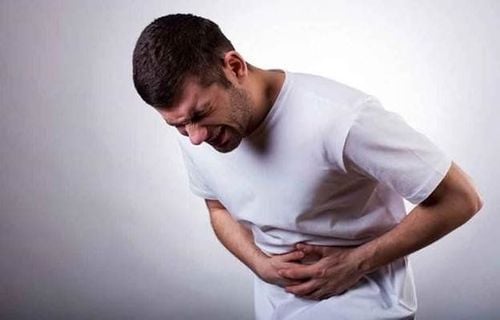
2.1. Abdominal pain In addition to the uncomfortable feeling of abdominal distension, bloating,... , sometimes appear suddenly but also sometimes forewarned 4-5 minutes by the manifestation of mild pain, tingling. When abdominal pain, patients with irritable colon have a feeling similar to wanting to defecate urgently and have to go to the toilet immediately; Timing: The pain usually occurs right after a meal or when there is a psychological trauma. For women, colic pain may occur near the time of menstruation; Location: Pain is usually on the left side of the hypogastrium, sometimes also in the right iliac fossa. In addition, a typical feature of colic spasms is that they will lessen or completely disappear after defecation (farting, "farting") or after defecation, the patient can resume activities. back to normal.
2.2. Diarrhea Features: Diarrhea is the most common, but sometimes the patient's stool becomes viscous. Another form is constipation, only 2-3 days to have a bowel movement, there may be mucus in the stool but no blood. Diarrhea and constipation may occur singly or alternately; Time: Disturbance of bowel movements usually occurs in the morning. Specifically, after eating breakfast, the patient will have diarrhea 2-3 times in a row, or even more, then stop and return to normal throughout the day, less often at night; Progression: Disturbance of bowel habits due to irritable bowel disease may persist for months, then resolve spontaneously without treatment. 2.3. Other signs In addition to the two characteristic symptoms mentioned above, the person may be tired, anxious, or sleep deprived. However, body temperature is always stable, no fever; conducting blood tests, stool tests, ultrasound, abdominal X-ray, gastrointestinal endoscopy... all showed normal results or only slight changes.
The failure to find the cause is accompanied by the symptoms of the disease that continue to appear for a long time, making the patient more anxious and sad, and the quality of life is reduced. If the patient actively abstains from many things without consulting a doctor, an inadequate diet also makes the body increasingly thin and weak.
3. Treatment of irritable bowel disease

Drugs to regulate bowel movements; Antispasmodic drugs if the patient has severe abdominal pain; For frequent diarrhea, use Loperamide, Diarsed, Lomotil... Some sedatives, anti-depressants. 3.2. Lifestyle changes Besides drug treatment, doctors also encourage patients to actively prevent disease and contribute to improving symptoms of the disease by making lifestyle changes that are more reasonable and scientific, such as:
Avoid stressful thoughts; Do not overwork; Create a habit of having a bowel movement at the same time every day; Exercise - regular sports, for example walking, swimming,...; Practice deep breathing according to nourishing methods or other mental relaxation methods. 3.3. Nutritional balance In addition, people with irritable bowel disease must also adjust their diet to be healthy and moderate, specifically:
Do not abuse alcohol; Abstain from irritating foods, such as sour, spicy, coffee, and gas-producing foods; Limit milk and dairy products, fishy foods such as seafood, grease, or eggs... if you have digestive disorders. Eat slowly, chew thoroughly, do not eat too full and divide portions to reduce colon spasms. However, for patients with irritable bowel disease who do not have many digestive disorders, they should not be too abstinent to avoid physical and mental weakness. Creating a habit and maintaining a moderate, gentle exercise will work to reduce the risk of spasmodic colon disease. Building a healthy body and adapting to the living environment of modern society, combined with following the doctor's prescription, can help patients manage and cope well with irritable bowel disease.
Specialist Doctor I Vo Thi Thuy Trang is trained in gastroenterology, hepatobiliary tract and gastrointestinal endoscopy; continuously updated and received advanced endoscopic training from professors and endoscopy experts from Switzerland and Japan; participated in many domestic and international gastroenterology and endoscopy conferences.
With nearly 20 years of working at Da Nang General Hospital in the field of gastrointestinal endoscopy - hepatobiliary disease, every year, Doctor Vo Thi Thuy Trang participates in endoscopy more than 1500 cases including: endoscopic diagnosis of diseases stomach, colon such as: detecting inflammation, ulcers, polyps, cancer, finding HP bacteria, detecting cancer early in the digestive tract...; Endoscopic treatment such as: Hemostasis in gastrointestinal bleeding, esophageal varices ligation in cirrhosis, endoscopic gastrointestinal polypectomy...
Please dial HOTLINE for more information or register for an appointment HERE. Download MyVinmec app to make appointments faster and to manage your bookings easily.






